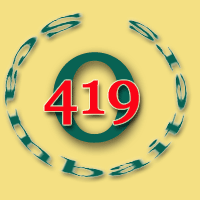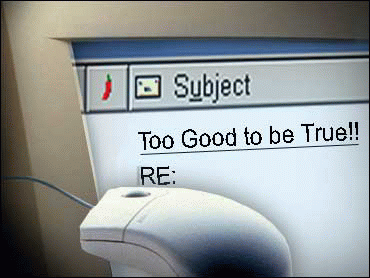
• Home •
Victim´s Story •
Fraud Prevention •
Active Baits •
Hall of Shame •
LINKS •

Forgery and Fraud
CONSUMER ALERT!
Education is best way to fight scams
The Forgery Fraud Unit is located in Room 108 of Minneapolis City Hall, 350 South 5th Street, Minneapolis, MN 55415-1389, 612-673-2941 .
The Forgery/Fraud Unit of the Minneapolis Police Department investigates financial crimes which occur in the City of Minneapolis, consisting of forgery, financial transaction card fraud (unauthorized use of credit, check, debit and EBT cards or account numbers), theft by swindle (scams, con games, misrepresentation), identity theft, and embezzlement. Cases assigned for investigation are those in which a perpetrator is arrested during the commission of the crime and those involving significant monetary loss (generally, at least several thousand dollars).
Several of the crimes described below may be reported by phone through Minneapolis 311 or in person at your respective precinct (reports may not be made to your precinct by phone). If you are unsure which precinct you are in, you may enter your address and look it up here: Police Precinct Finder. Persons calling from within Minneapolis may dial 311. Persons calling from outside the city may call 612-673-3000 . 311 Customer Service Agents are available Monday through Friday from 7:00 a.m. to 11:00 p.m.
Call our Forgery Fraud Unit at 612-673-2941 or e-mail us at mailto:police@ci.minneapolis.mn.us if you have further questions.
If You Have Accepted a Forged Check from Someone:
Call 911 to request a police officer come to your residence or business. The officer will take your report and obtain and turn over the forged check to the police jurisdiction where the event took place.
If A Merchant Accepts An "Nsf" Check:
Merchants who accept a check that is subsequently returned by the bank marked "NSF" (non-sufficient funds), or "Account Closed" should call the Financial Crimes Services Check Diversion Program at 1-800-880-5420 and request a Restitution Guide for Merchants for the city of Minneapolis. A representative of this non-profit organization will provide assistance and explain the restitution process. Information is also available at financialcrimes.net.
If the Check Diversion Program is unsuccessful in achieving restitution and if they believe criminal intent can be proven, they will refer the matter directly back to the MPD Forgery Fraud Unit, where a report will be taken.
Credit Card Fraud: How to Detect Bad Credit Cards*:
Authorization. The most important security step for detecting bad credit cards is to carefully follow the credit card company's authorization procedures. All employees should be trained on how to follow each card's procedure.
Physical Appearance. When a credit card is presented to you, carefully examine it. Take a good look at the card. Look for anything out of place, embossed data that is crooked or improperly spaced. Look at the colors of the card. Are the colors too light or too dull? Darker in some parts and lighter in others? Beware of any credit card that does not look right as it may be counterfeit.
Check Expiration Date. Always check the credit card's expiration date to make sure that the date has not expired. Also carefully check the expiration date for any evidence of alteration or tampering. Beware, expiration dates are frequently altered to give "new life" to an expired card.
Feel the Card. Carefully feel the card. Does the card feel too heavy or too light? Does the card feel too thick or thin? Does the card feel too lumpy or rough on the surface or card edge? Beware of any card possessing the above abnormalities. It could be counterfeit.
Examine Name. Carefully examine the name to whom the credit card is issued. Beware of any irregularities in the lettering or spacing of the name. Professional counterfeiters are able to shave off or iron down the names and numbers on credit cards and then emboss new ones. These newly embossed names and numbers are used by credit card criminals to make stolen cards appear valid.
Examine Back of Card. All Visa and MasterCard cards contain a special magnetic strip on the back of their cards. They also contain a signature block on the backside. Be thoroughly familiar with the backside of all credit cards you process and whether they possess any magnetic strip. Beware of any charge card without magnetic strip and/or signature block as it may be counterfeit.
Check ID and Signatures. Ask for ID to check with credit card. When a criminal steals or counterfeits a credit card, they are forced to create or assume another identity to complete their name. A major weapon against credit card fraud is a close examination of identification and card signatures. Ask for positive identification.
Triple Check Signatures. Always ask for the credit card sales draft to be signed in your presence. Then carefully compare the signature on the sales draft to the signature on the back of the credit card. Then compare the signature on the ID. Triple check the signatures by comparing the ID signature to the signature on the sales draft. Beware of any discrepancies in comparing these signatures.
Check Security Features. Special security features are constantly being added and improved on credit cards. You must keep up to date on all these new security features. For example, holograms are now being used on many credit cards. This hologram is a specially processed three-dimensional appearance that is extremely expensive and difficult to counterfeit. Carefully check this hologram for the three dimensional appearance by tilting it at different angles.
Obtain Authorization. Know your company policy regarding credit card transaction authorization. Follow their procedure to the letter. Fully cooperate with the authorization center and any security measures or procedures they request.
Protect yourself and your customers from possible misuse of their credit card numbers by keeping their credit transactions confidential. This means giving the charge slip carbons back to the customer or destroying them so that the thief inside or outside of your business cannot obtain numbers and names by going through your trash. Once obtained, they could be used to target your business and others for fraudulent mail order or phone order scams.
If any unusual situations occur that make you feel uneasy about a credit card transaction, call the credit card company involved and ask for advice from their security before proceeding with the transaction. Do not return the card to the user until instructed to do so by the credit card security personnel. Also, have employees initial each charge transaction they handle so you can refer back to them in case of a discrepancy.
If Your Checks or Credit Cards are Lost or Stolen (this includes check cards, debit cards and EBT cards):
Make a police report to cover the theft or loss of your checks or cards. Call Mpls 311 or go to your respective precinct to make your report (reports may not be made by phone to your precinct). If you are unsure which precinct you are in, you may enter your address and look it up here: Police Precinct Finder. Persons calling from within Minneapolis may call 311. Persons calling from outside the city may call 612-673-3000 . 311 Customer Service Agents are available Monday through Friday from 7:00 a.m. to 11:00 p.m.
Notify your bank or credit card company if you have not already done so and have them change the account number or close the account. Ask your bank to mark all returned checks as FORGERIES. This will reduce the likelihood of merchants turning the forged checks over to collection agents who will then hound you for payment. Then, call the three credit reporting bureaus to report the loss and ask them to put a FRAUD ALERT on your account so no new credit will be issued without your authorization. This is especially important if any form of identification was also lost or stolen at the same time.
Experian 1 - 888 - 397 - 3742
Trans Union 1 - 800 - 680 - 7289
Equifax 1 – 800– 525 - 6285
If your Stolen Checks or Cards Have Been Used:
The subsequent use of any of the lost or stolen checks or credit cards must be reported to the police by the merchant or bank where it was presented for payment. Contact the banks and/or businesses that accepted your checks or cards to notify them of the fraudulent use. Encourage the banks and businesses to pursue charges against any suspects identified. Your bank or credit card company should have you sign an affidavit of check forgery or credit card fraud, and they should reverse all of the checks/charges relating to the fraudulent transactions.
Minimize the Opportunity of Stolen or Counterfeited Checks Continuing to Circulate:
Contact the Retailers Protection Association at their web site (theftreporting.com), fill out the Victim Statement form, titled "Supplemental Victim Statement, Report of Stolen or Counterfeit Checks," and fax it directly to the RPA at the listed number (or you may mail it to the Minneapolis Police Department, Forgery/Fraud Unit, 350 S. 5th St., Room 108, Minneapolis, MN 55415). This information is then entered into a database used by banks and retailers to track and limit the use of stolen and counterfeit checks.
THE GOOD NEWS: You are NOT responsible for monetary losses resulting from the subsequent use of your lost or stolen checks or credit cards. The banks and credit card companies must refund your money losses (if any), although they may hold your money while they are conducting an investigation in the case. Some can charge you up to $50 per account (read the fine print in your credit card agreement), but most do not.
However, you MUST have made a police report, notified the bank/credit card company in a timely manner and signed any required affidavits.
Call our Forgery/Fraud Unit at 612-673-2941 if you have further questions.If Someone has Stolen your Identity to Get New Credit:
In Minnesota, identity theft becomes a crime only when a victim (person or business) suffers a monetary loss. Call Mpls 311 and make an identity theft report or go to your respective precinct to make your report (reports may not be made by phone to your precinct). If you are unsure which precinct you are in, you may enter your address and look it up here: Police Precinct Finder. Persons calling from within Minneapolis may call 311. Persons calling from outside the city may call 612-673-3000 . 311 Customer Service Agents are available Monday through Friday from 7:00 a.m. to 11:00 p.m.
Call the Federal Trade Commission Identity Theft Hotline to notify them and get advice on how to proceed. Notify all three credit reporting bureaus to put a Fraud Alert on your data and immediately request a credit report. You must then advise the credit bureau and the institution making the entry of any specific fraudulent accounts appearing on that report. That institution should send you an affidavit of account/transaction fraud to sign and return to them.
FTC ID Theft Hotline: 1-877-438-4338
Other internet resources for advice and information on ID theft:
Federal Trade Commission (FTC) ID Theft Hotline
U.S. Department of Justice
Privacy Rights Clearinghouse
Privacy Rights & ID Theft Campaign
Internet Crime Complaint Center
Minnesota Attorney General – Privacy Protection
NWCC Website
W3C Web Security
IAFCI
"Guarding your Identity" Information (pdf)
OTHER PHONE RESOURCES FOR ADVICE AND INFORMATION:
Federal Government Information Center
(for agency phone numbers): 1-800-688-9889
© by GSO • Contact